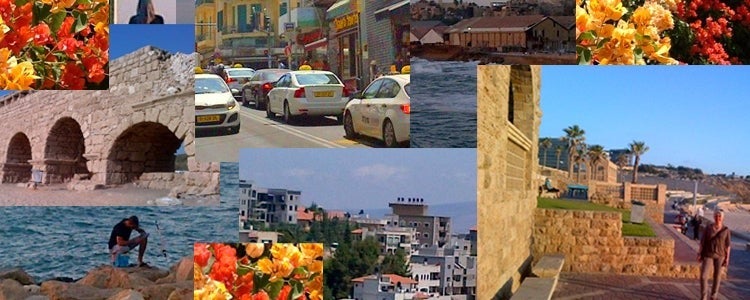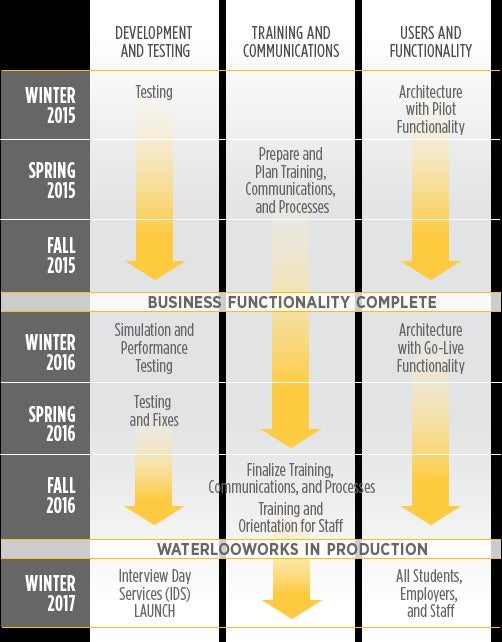Editor:
Brandon Sweet
University Communications
bulletin@uwaterloo.ca
Tales of a Teacher: Jasmin Habib

by Hina Ahmed. This is the second of five Centre for Teaching Excellence Teaching Stories that will appear in the Daily Bulletin over the next two weeks.
How do you know that you have met a Professor who not only has a magic way with words, but also has the key to unlock hidden pieces of knowledge you may already have? You go in for a short interview, and come out hours later having learned so much not only about the professor, but also about yourself! Dr. Jasmin Habib is the embodiment of such a thought-provoking and insightful instructor. She wears many hats: she is a story-teller, a nurturer of curiosity, a supportive mentor, and a facilitator of self-reflective knowledge acquisition.
Dr. Jasmin Habib’s “Transnational Migration” course started as a special topics course in Political Science with just 12 students. When it was next offered it attracted more than 60 excited undergraduates as well as quite a few auditors. The classroom was full to the brim.
“Anthropologists like to share stories of their experiences,” states Habib, “but we also have some responsibility to share our understandings, to place those experiences within some political framing or perspective, and at times to give voice to those whose stories have been marginalized by power, conflict, or location.” Habib lectures in ways that promotes discussion rather than passive listening. She believes that class time provides students the opportunity to challenge the ideas that she presents to them – through lectures, films, assigned readings and assignments -- and she fosters a safe space for students to share their own narratives. A strong believer that open dialogue promotes deeper learning, Habib always ends her classes with an “Ask the Prof” session.
Instructors like Habib have the capacity to unravel the assumptions we carry as humans with diverse backgrounds, identities, and experiences. They realize that instructors should learn from their students as much as students should learn from them. Former student Trieneke Gastmeier says that “In her classroom, Habib facilitates a dialogue where the students’ and the professor’s voices come together to create meanings -- there is no one ‘truth’ and the politics in and of the classroom are constantly deconstructed.”
In Habib’s course “The Political Documentary” students develop a critical lens through which they can interpret, navigate, and interrogate how controversial political subjects like the Holocaust, the US War in Vietnam, the attacks of September 11, or torture in Iraq have been represented in documentary form. Students choose to write about topics that are of interest to them with each step carefully designed to help them develop the necessary skills for completing their projects. What makes her teaching so effective is her ability to weave a range of teaching components and assessment tools that allow students with diverse learning styles to achieve their course learning outcomes.
Using a combination of peer teaching through group facilitation exercises, small and large group discussions, reflective and research writing, and self-evaluation reports, Habib ensures that students maximize their learning both in and outside the classroom. Habib’s dedication to teaching can be seen through her refusal to shy away from more time-consuming methods of assessment. Former student Zainab Ramahi shares that “Professor Habib’s assignments were far from arbitrary assessment mechanisms -- they prepared us for further and deeper exploration into our chosen topics. We were not assessed in terms of the content we memorized, but rather on the critical thinking and transferrable skills that we gained.”
WaterlooWorks coming online Winter 2017

By: Stephanie Tortorici
WaterlooWorks™ will be Co-operative Education & Career Action (CECA)’s administration system, replacing JobMine and other standalone applications currently used to support co-op and career success. This system boasts improvements to JobMine functionality, like Google Maps on job postings, improved search options for students, better screening tools for employers, and overall increased functionality for staff.
The team, a partnership between CECA, Information Systems & Technology (IST), and vendor Orbis Communications, launched the application in spring 2014 as a pilot with the School of Architecture. Architecture students and employers are now officially using WaterlooWorks as their administration system for the co-op program.
Given what we’ve learned and the experiences we’ve gone through, we understand what’s required to launch the technology and deliver requirements for all users. We can now present a realistic and achievable timeline, based on the following principles:
- Maintaining the credibility and reputation of UWaterloo and the co-op program is of utmost importance
- WaterlooWorks will be implemented for all users only when technology, processes, and people are ready
- Some functionality will be delivered as part of ongoing continuous improvement
- Thorough testing will ensure that WaterlooWorks is able to support all users and provide them with the highest level of quality that would be expected from UWaterloo
Highlights of the plan:
- WaterlooWorks will be implemented for all users in winter 2017
- Checkpoints are in place throughout our timeline such that we will implement sooner if we are in a position to do so
- 2015 will focus on completing the final pieces of the development work and continuing to test, with all business functionality complete by the end of the year
- 2016 will focus on performance testing, ensuring all security and accessibility requirements are met, and business simulation, to ensure that all processes and functionality that cannot be adequately tested with the School of Architecture are performing as expected
- Training, communications, documentation, and processes will continue to be a priority
- Paging system, employer and staff service desks are to be implemented during the continuous round of winter 2017
All co-op students were sent an email on July 16 with details of the new plan. Information about the timeline was also published on the WaterlooWorks Facebook page the following day. We understand that students are disappointed and frustrated with the delay, and are committed to answering any questions openly and honestly through our Facebook group, posters, email, and the website.
More information about our implementation plan can be found on our website. We have recently updated our online presence with more information about the project based on student feedback. Any questions or comments about the project or implementation plan can be directed to waterlooworks@uwaterloo.ca.
Management engineering students nab top awards
This article was originally published on the Faculty of Engineering's news site.
Two management engineering teams won the top two awards in the undergraduate category at this year's Canadian Operations Research Society (CORS) 2015 Student Paper Competition held in Montreal. A third team placed in the competition's top five. All the students' papers were also their 2015 Waterloo Engineering Capstone Design projects.
Winners of the first prize in the undergraduate category were Zhara Bodla, Ahad Ismail, Ra’ad Daoud and AbdulRehman Shaheen for their paper entitled Redesigning Fischer Canada’s Facility Layout and Scheduling Operations. Faculty advisor for the team was Fatma Gzara.
Honourable mention in the undergraduate category went to Jordan Moreau, Ian Gresel, Mohamed Hashem and Andrew Scott for their paper Feeding Iqaluit: a Consolidated Shipment Ordering System. Faculty advisors for the team were Jim Bookbinder and Stan Dimitrov.
"This was a competition that we've had our eye on since the introduction of the management engineering program (2007)," said Samir Elhedhli, chair of management sciences. "This is just the start."
Wednesday's Notes
Former president of India, A. P. J. Abdul Kalam, Ph.D., passed away on Monday, July 27. Dr. Kalam twice visited the University of Waterloo, and was conferred an Honourary Doctorate of Engineering degree from the institution in 2010 for his notable aeronautic engineering success.
Link of the day
When and where
NanoMRI Conference, Monday, July 27 to Friday, July 31, Institute for Quantum Computing.
Lectures end, Tuesday, July 28.
FemPhys Tea & Talk, Tuesday, July 28, 12:00 p.m., egg fountain outside MC.
Discovery Square presented by Faculty of Science, Tuesday, July 28, 5:00 p.m., Carl Zehr Square, Kitchener.
Pre-examination study days, Wednesday, July 29 to Monday, August 3.
EIT presents Dinosaur Tour, Wednesday, July 29, 1:00 p.m., Earth Sciences Museum.
SHAD public open house, Thursday, July 30, 1:30 p.m., Conrad Grebel University College Great Hall.
GreenHouse Social Innovation Showcase, Thursday, July 30, 4:00 p.m. to 5:30 pm, Alumni Hall, St. Paul’s University College.
August Civic Holiday, Monday, August 3, most University operations closed.
On-campus examinations begin, Tuesday, August 4.
Minerals Tour, Wednesday, August 5, 1:00 p.m., Earth Sciences Museum.
Online examination period, Friday, August 7 and Saturday, August 8.
Quantum Cryptography School for Young Students, Friday, August 7 to Friday, August 14, Institute for Quantum Computing.
Minerals Tour, Wednesday, August 12, 1:00 p.m., Earth Sciences Museum.
Perseids Meteor Shower Stargazing Party, Wednesday, August 12, 7:30 p.m., OPT 347.
Biomedical Discussion Group Lecture featuring Dr. Herbert Waite; University of California, Santa Barbara (UCSB) “Mussel Power: Defining the Essentials for Translation to Technology” Thursday, August 13, 3:30 p.m. to 4:30 p.m., E6-2024.
Examination period ends, Saturday, August 15.
Quantum Key Distribution Summer School, Monday, August 17 to Friday, August 21, Mike & Ophelia Lazaridis Quantum-Nano Centre Room 0101.
Instructional Skills Workshop - CTE601, Tuesday, August 18, 9:30 a.m., EV1 241.
Minerals Tour, Wednesday, August 19, 1:00 p.m., Earth Sciences Museum.
Retirement celebration for Peter Jordan, Wednesday, August 19, 3:00 p.m., Federation Hall.
Date for students to be "Fees Arranged", Thursday, August 27.
Spring co-operative work term ends, Friday, August 28.
Orientation Week, Saturday, September 6 to Saturday, September 12
Labour Day, Monday, September 7, most University operations closed.
Lean in Higher Education Conference, Thursday, September 10 to Friday, September 11, Federation Hall.
Lectures begin, Monday, September 14.
Hack4Health, Saturday, September 26 to Sunday, September 27, Waterloo Accelerator Centre.
Annual Traditional Pow Wow, Saturday, September 26, 12:00 p.m., Waterloo Aboriginal Education Centre, St. Paul's University College.
AHS Annual Fun Run, Saturday, October 3, 8:30 a.m., BC Matthews Hall.
Fall Teaching Week, Monday, October 5 to Friday, October 8.
Positions available
On this week's list from the human resources department, viewable through myHRinfo:
- Job id# 2894 – OHD Coordinator – OHD – USG 8
- Job id# 2896 – Senior Development Officer – Dean of Engineering – USG 11
- Job id# 2899 – Project Manager – Propel Centre for Population Health Impact – USG 8
- Job id# 2898 – Project Manager – Proper Centre for Population Health Impact – USG 8
- Job id# 2902 – Undergraduate Program Assistant – Recreation and Leisure Studies – USG 5
- Job id# 2904 & 2905 – Manager, Institutional Research – Office of Research – USG 8-10
- Job id# 2900 & 2906 – Library Associate, Special Collections and Archives – Library – USG 6
- Job id# 2895 – Societies Accountant and Administrative Assistant – Federation of Student s- USG 7
Internal secondment opportunities, viewable on myCareer@uWaterloo:
- Student Advisor – Co-operative Education & Career Action – USG 8/9
- Administrative Assistant – University of Waterloo Staff Association – USG 5
- Digital Communications Officer – Student Success Office – USG 8
- Communications Officer- student Success Office – USG 8